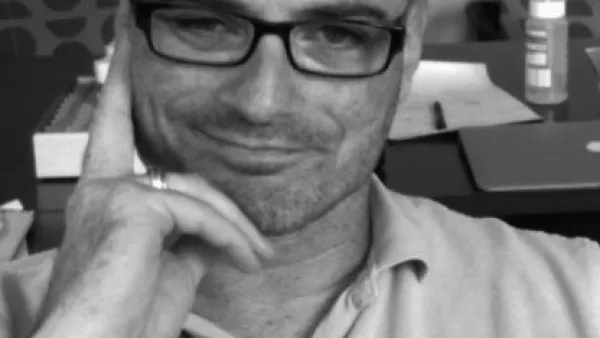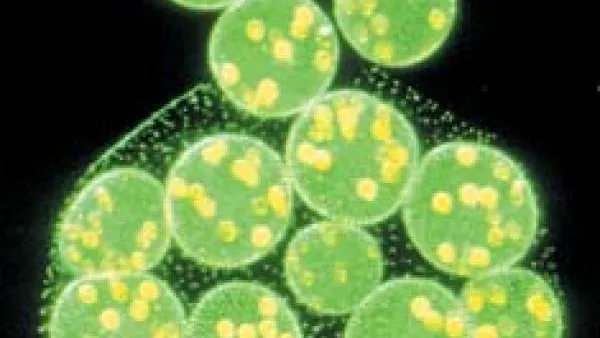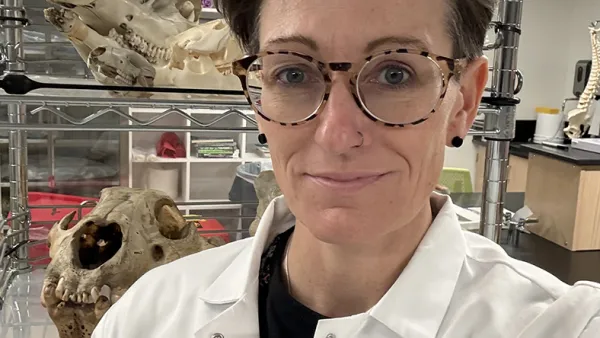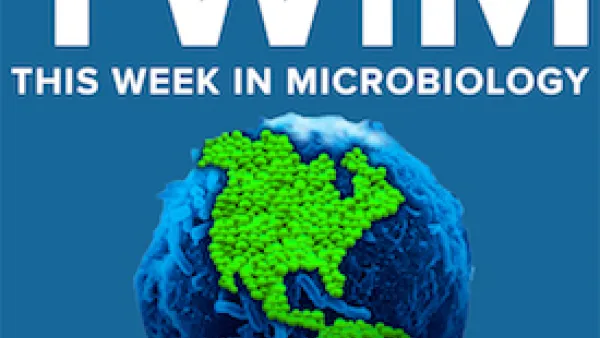
If Kiani Arkus Gardner could be a superhero, she would be Storm and use her superpowers to control the weather.
“Hurricanes in the Gulf, calm them down. Fires in Australia, send the rain. From a purely humanitarian aspect, calming the weather is the best thing you could do for the world,” said Gardner. She graduated from Washington University in St. Louis (WUSTL) as a biology major in 2007.
Gardner, a Native Hawaiian who, as the president of the Hawaii Club during her time at WUSTL, organized the annual luau, says her first task as Storm would be to freeze the ice caps right back up.
The mother of two young boys cannot be a superhero; sometimes, she has to play the supervillain. But she is hoping her election to the U.S. House of Representatives will give her a chance to improve the lives of constituents living in Alabama’s 1st Congressional District.
On March 3, 2020, just before the COVID-19 pandemic brought social distancing to America, Gardner got one step closer to that goal, receiving 44.1% of the votes in the Democratic primary. Her opponent, James Averhart, received 40.3% of the vote. A Democratic primary runoff will occur on July 14, 2020.
“As I campaign for office, I often look at strangers in the eyes and say - I don't know you, and I don't know anything about your life, but I want to make it better. How do we do this?” said Gardner.
Academia as an avenue for community service
Gardner grew up in a highly entrepreneurial family – both parents owned businesses, but her dreams of making the world a better place have always revolved around science.
For Gardner, that love for science blossomed at an early age thanks to supportive parents and a science fair course during middle and high school that exposed her to hypothesis-driven science.
She did well in her high school science fair course, which allowed her to compete in international science competitions. By the time she got to WUSTL, she felt very comfortable working in a laboratory. An internship program through the Danforth Plant Science Center during her freshman year at WUSTL allowed her to continue exploring her scientific interests while earning an income to support herself.
As the youngest intern that the program had ever allowed, Gardner spent her summer doing research with Dr. Joseph Jez, Chair of Biology at WUSTL, who, at the time, was a principal investigator at the Danforth Plant Science Center.
Gardner was on a well-mapped-out path to becoming a scientist. She was going to pursue a scientific career because she wanted to be a scientist – a dream since she was six years old.
In her junior year of college, Gardner had a unique opportunity after an unpredictable tragedy that would ultimately change how she thought about her scientific career.
Hurricane Katrina, a category five hurricane, hit Louisiana and resulted in levee failures in New Orleans. Communities were underwater. Lives were lost. The economic impact on these communities was massive.
WUSTL responded by inviting Tulane students to campus for the academic school year. In the span of a few months, a new course was created. Professor of Anthropology Tristram Kidder and Professor Wayne Fields in American Culture Studies organized a course entitled “Hurricane Katrina: Case Study in Disaster and Reconstruction”.
“I’m a former resident of New Orleans, having spent nearly 20 years living there. I wanted to do this course because I felt powerless here in Missouri to do anything. This was my academic way of responding: to analyze what had happened, to understand what was happening, and to think about ways to respond to what was unfolding at the time and into the future,” said Kidder.
Gardner enrolled. In this freeform course, she learned about the geography and the anthropology of lower Louisiana and the history of the Mississippi River. She gained exposure to emergency management agencies such as FEMA and SEMA.
Over spring break, the class went to New Orleans and did relief work in St. Bernard Parish. They cooked meals, set up computers, and worked in the first-aid tent.
“It was amazing to work with residents and volunteers across the country. It was also one of the most intimate academic experiences I’ve had. I got to work with, eat with, and live with the students for a week. It was remarkable because it provided insights into each person,” remembered Kidder.
For Gardner, it was an equally powerful experience.
“It prepared me for what it looked like to care about people I have never met before. That was the first time that I thought about academia as an avenue for service to people,” Gardner explained.
“It prepared me for what it looked like to care about people I have never met before. That was the first time that I thought about academia as an avenue for service to people."
Gardner stayed on her path and went to graduate school to earn a Ph.D. in Cell Biology at Duke University. But she was not just following a childhood dream anymore.
“I realized that I wanted to be a scientist because I wanted to discover something that helps people,” summarized Gardner.
Science-driven policy
After making significant scientific contributions, Gardner started teaching. She became a full-time biology professor in the community college system. She wanted to make it possible for people to become nurses or dental hygienists. She helped them get a GED.
“My priority was to use my skills to invest in my community. Moving into the community system was the right choice for me,” said Gardner.
When a professional opportunity presented itself for Gardner’s husband, Gardner and her family moved to Alabama. Teaching was no longer the best way for Gardner to use her skills. Gardner, whose career had moved the family multiple times, was ready for her next professional adventure, one that she has unknowingly been preparing for since WUSTL.
“We didn't have any family and friends in Alabama, which was a very new experience. And we had two small children. I had to become a lot more purposeful in making connections to make sure my kids had a community to grow up in,” said Gardner.
One of the communities Gardner got involved with was the local Democratic Party. At first, she was going to meetings and volunteering on election day.

"ELECT MORE SCIENTISTS" t-shirt
“Then it became clear that we needed educated and informed leadership in Alabama. I considered running for school board in a few years, but the opportunity for Congress presented itself when I was asked by a couple of people to run,” recalled Gardner.
Although Gardner has shifted her focus to public service, she still relies on lessons learned in her science training to guide decisions in her own life and the campaign platforms she hopes will one day improve the lives of her future Alabama constituents. One of the biggest lessons came as part of her undergraduate biology research with Jez.
“Joe taught me a lot about respecting the data and not letting my opinions influence my interpretation of the data,” Gardner reflected on her time in the Jez lab.
As a confident and excited seventeen-year-old working on her first scientific publication, Gardner approached Jez about a final experiments needed for the paper. The data were not what she expected to find.
“I went to him the next day and told him the experiment is not good. He asked what I meant by not good. He told me that if the data does not fit the model, it does not mean the experiment was not good. It means I was wrong,” recalled Gardner.
Gardner learned an important lesson that day.
“Never be so in love with your ideas that you do not see the data,” said Gardner.
“Never be so in love with your ideas that you do not see the data,” said Gardner.
Her training in the scientific method ultimately proved to be very valuable in her run for Congress. She brings her scientific training with her to work every day. She applies data, not opinions, to her decision-making.
During her campaign, she is often asked what her thoughts are on various political issues.
“My response is: it does not matter what I think. It matters what is true,” Gardner explained.
Choosing a good life
Gardner has lived in many different states; as a transplant to southern Alabama via Hawaii, Missouri, and North Carolina, she has met, lived with, and grown up with people who have very different political views.
“I had my physical coming of age in the very democratic state of Hawaii. I had my academic coming of age in Missouri, a highly political swing state. I spent my professional years engaged in North Carolina during the Obama era,” said Gardner.
She knows that there is not just one way to do politics. By running for Congress, Gardner provides Alabama with a choice – one it would not have.
Historically, Democrats have not run for almost any position in Alabama. “That means come November, you don't have choices,” explained Gardner. “I believe in democracy and that a strong opposition forces everyone to be better. I refuse to raise my children in a place where there is not any power to your vote because your vote must go to one person.”
“My kids deserve choices. My neighbors deserve choices. Alabamians deserve your choices. For a long time, we have not had any,” continued Gardner.
But providing Alabamians with choices is only one of her goals.
As a foster mother, Gardner learned “that I can look at any child, know nothing about them, and honestly love and want the best for them.” Now she applies that same nurturing kindness to her community.
“I care really deeply that people are able to build a good life for themselves,” she said.
“I care really deeply that people are able to build a good life for themselves."
To help Alabamians achieve that good life, Gardner has to understand their problems. Knowing that many of her constituents do not have reliable broadband access, it was important for Gardner to connect with her constituents in person. A typical Sunday – pre- COVID-19 – involved going to three or four churches.

“I must know what the issues are in my communities. If someone calls from Monroeville, I need to know what the situation in Monroeville is before I pick up the call. I am building that trust that says I do care about what you need,” said Gardner.
When constituents go to the polls in July, they will see Gardner’s name on the ballot. And they will ask themselves – who is Kiani Gardner?
Some people may vote for her because her name sounds familiar. While others may relate to her being a scientist, an educator, a mother, and a foster parent. She hopes for is that they remember that she cares to make a difference in people’s lives.
Her identity – formally tied to what she could and could not do – dramatically changed after a motorcycle accident. Twenty-something surgeries late, Gardner re-evaluated her identity.
“I found my identity a lot more closely tied to what matters to me. Everyone should be able to have joy, find joy, and build a good life,” said Gardner. “I'm going to work for that - whether it's as an educator, as a mom, or as a congresswoman.



